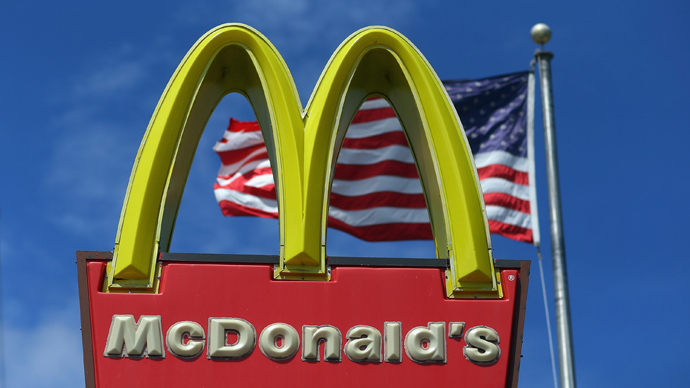McDonald’s is under fire once again, this time for suggesting employees break up their food into smaller pieces to get full and to sell personal belongings on eBay or Craigslist for cash.
These recommendations, along with others, were made public on Tuesday when the activist group Low Pay Is Not OK, which promotes higher wages for fast food workers, posted a YouTube video concerning the McResource employee website.

The McResource site is intended to help employees cope with stress, health, and financial issues. Among its proposals were lowering blood pressure by “singing along to your favorite songs,” “breaking food into pieces” so that you can get full on less of it, and taking at least two vacations a year. The latter may be difficult for those working two jobs to make ends meet, as a McDonald’s employee budget calculator was found to assume earlier this year
Additionally, the website recommended freeing up some cash by returning “unopened purchases” and “selling some of your unwanted possessions on eBay or Craigslist.”
At one point, the website even told employees to “quit complaining” because ten minutes of complaining raises stress hormone levels.
According to a statement given to NBC News, McDonald’s said these “rotating quick tips” were taken out of context by Low Pay Is Not OK, and that much of the website’s content is “based on credible outside experts and well-published advice.”
“This is an attempt by an outside organization to undermine a well-intended employee assistance resource website by taking isolated portions out of context," the statement read.
The company also added that the content is produced by an independent company, which they will work with to make "any necessary adjustments to the information to make sure that it stays a trusted, accurate, and useful tool for employees who choose to use it."
In October, Low Pay Is Not OK published a recording showing an employee calling the McResource site to ask for financial assistance. The recording made waves for showing hotline operators telling the woman to inquire about food pantries and enrolling in federal programs like food stamps and Medicaid.
A week before that recording was published, a study revealed that 52 percent of the families surviving on employment by fast food companies are registered in one or more public assistance programs. In comparison, 25 percent of the overall workforce is similarly enrolled in such programs.

